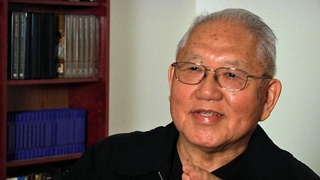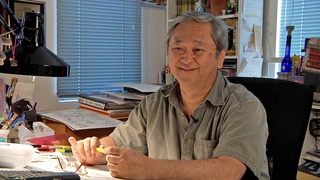Interviews
Lack of notion of citizenship in Japan
Japanese people don’t understand about citizenship. Even if I say I’m a Japanese American, they’ll say, “Your parents are Japanese. You’re a Japanese.” Because the law is different, I think. So you look Japanese. Even if you say, “Yeah, I’m American,” most Japanese, typical Japanese, I think they don’t have the concept of what a Nisei is or a foreign American citizen. Because in Japan, there’s many Korean people—Nisei, Sansei—but they never, I think it’s not because of the law, but they don’t want to be Japanese Korean. Second generation, third generation, they say “Japanese-residing Korean.” So, in some sense, I think there is no concept of citizenship like American—born in the States, you are an American.
Date: September 11, 2003
Location: Tokyo, Japan
Interviewer: Art Nomura
Contributed by: Art Nomura, Finding Home.
Explore More Videos















Postwar school-life
(b. 1930) Half Japanese and grew up in both Japan and the United States.
